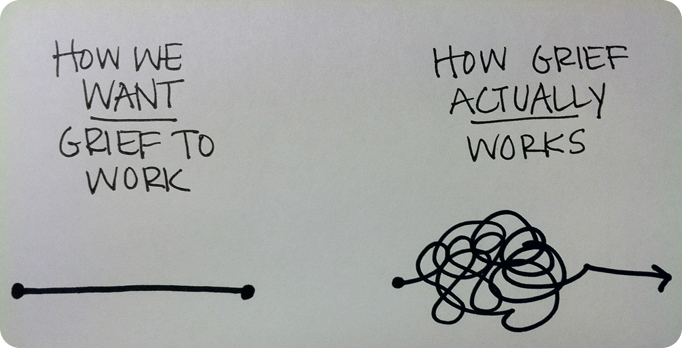
by Catherine Adams
At the end of February, I lost my beloved cat of 13 years to mammary cancer. I adopted her as a kitten when I was a child and she grew with me and comforted me through the highs and lows of my life. Needless to say, it’s been hard, and this experience has me thinking about the process of grieving as I move through it.
Unfortunately, I’ve had a lot of experience with grief in my short 25 years. When I look at this year and speak with my loved ones, I see grief all around me. Grief can be such a shocking experience, and I’ve found there are many harmful expectations surrounding how grief and healing should look. These expectations pigeon-hole us into pain and stagnancy, and can bar us from actually getting to the healing.
Researchers have identified different “types” of grief:
- Anticipatory grief. When we grieve a loss before the loss has happened. For example, many of us are grieving the loss of 2020 to COVID-19 before the year has ended.
- Common grief. This includes all of the symptoms you’d typically associate with bereavement.
- Complicated grief. Where the one affected grieves in an “atypical” way (we’ll get back to this later).
- Persistent grief. When intense grieving lasts past 12 months in association with certain symptoms.
Through years of experience, I’ve broken down alternatives to the following misconceptions associated with these types of grief to help free you from these expectations in a way that allows you to heal and move forward.
Grief can come hand in hand with any kind of loss, and loss doesn’t only apply to death. Perhaps you’re a part of the class of 2020 and are grieving the loss of a celebration of your accomplishments with friends and family. Perhaps you’re grieving the loss of a relationship and a future you had imagined together with that person. Perhaps you’re grieving the loss of an acquaintance, a public figure, or an unjustly killed stranger.
Whatever you’re feeling, that feeling is valid. After all, how can we move forward from something we haven’t acknowledged we’re going through?
It’s easy to slip into comparison at times of crisis. We may think that because the worst didn’t happen, that because we are alive and healthy and others are much less fortunate, that we do not deserve to feel distraught over events in our own lives.
But, while gratitude for our blessings is a good thing, as is empathy for others, comparison helps no one. It does no good for the less fortunate, and that sort of self-punishment only deepens our pain. Be kind to yourself, and let yourself feel what you are feeling.
Don’t let the surveys dictate how you feel. While research says that bereavement grief tends to last 7 to 12 months, how you cope with your loss (any loss) holds no bearing over what that person or experience meant to you.
Just because you’re able to feel happy after your loss does not mean that you’re happy that it happened. Moments of joy in the midst of a painful experience are completely normal.
Indeed, this myth is pervasive enough that it was deemed worthy of research. Inhibited grief, where a person shows few outward signs of grieving, is a commonly touted type of complicated grief that may contribute to the feeling that you’re doing grief “wrong.” But studies have shown that rather than being harmful or abnormal in some way, this kind of grieving is a sign of human resilience.
Loss is hard and the fact that you have the strength to continue with the difficulties of daily life in the midst of it is something to be proud of.
If you’re dealing with the death of a loved one, that person who passed would have likely celebrated your good days with you if they could. Letting go of your pain does not mean you’re letting go of what you loved.
Emotional numbing
There are times where starting over quickly is a sign of emotional numbing. This is when you “feel nothing” rather than feeling everything (memories, regrets, etc.). This is a coping mechanism for loss. With numbing, feelings may resurface at a later, seemingly unrelated time.
Complete Article ↪HERE↩!
